General Eisenhower's granddaughter gives inside look into his D-Day service
Susan Eisenhower recounts her grandfather's role during D-Day.
The United States Military Academy at West Point, which has trained generations of American leaders to serve from the battlefield to the White House, was established on this day in history, March 16, 1802.
Its graduates pioneered America's way west and humanity's path into the heavens.
The academy's creation was part of the Military Peace Establishment Act, introduced by Massachusetts Congressman Joseph Varnum, and signed into law by President Thomas Jefferson.
"Congress established a separate Corps of Engineers to be located at West Point, New York, and constituted it as a military academy with the Chief Engineer serving as superintendent," writes the website of the U.S. Army Corps of Engineers.
"This action, taken at a time when the overall size of the Army was reduced, placed the Corps on permanent footing and capped a quarter-century of efforts to provide professional training for officers."
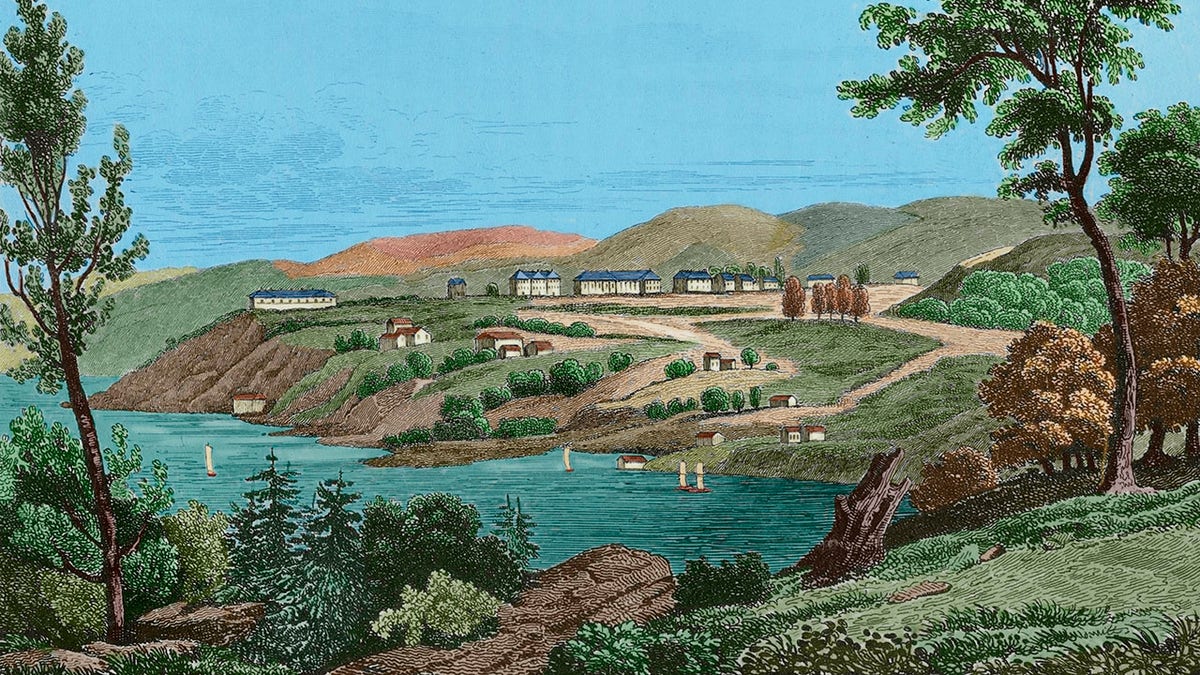
View of West Point. George Washington selected Thaddeus Kosciuszko, one of the heroes of Saratoga, to design the fortifications for West Point in 1778. President Thomas Jefferson established the United States Military Academy in 1802. Engraving by Milbert. Panorama Universal. History of the United States of America, from 1st edition of Jean B.G. Roux de Rochelle's Etats-Unis d'Amerique in 1837. (PHAS/Universal Images Group via Getty Images)
The United States Military Academy opened for instruction on July 4. Massachusetts native Joseph Gardner Swift was its first graduate.
West Point, as its commonly known, stands today as the world's premier institute of military training and also one of its top engineering schools.
The academy attracts the best and brightest patriotic young Americans from coast to coast.
"West Point grads designed almost all early American railways, roads and bridges as it was the only engineering college in the country until 1824." — American Battlefield Trust
"West Point grads designed almost all early American railways, roads, and bridges as it was the only engineering college in the country until 1824," writes the American Battlefield Trust.
West Point grads in the 20th century proved essential to the NASA space program. Two of the three astronauts on Apollo 11, the first mission to put men on the lunar surface, were West Point graduates: command module pilot Michael Collins (Class of 1952) and moon walker Edwin "Buzz" Aldrin (1951).
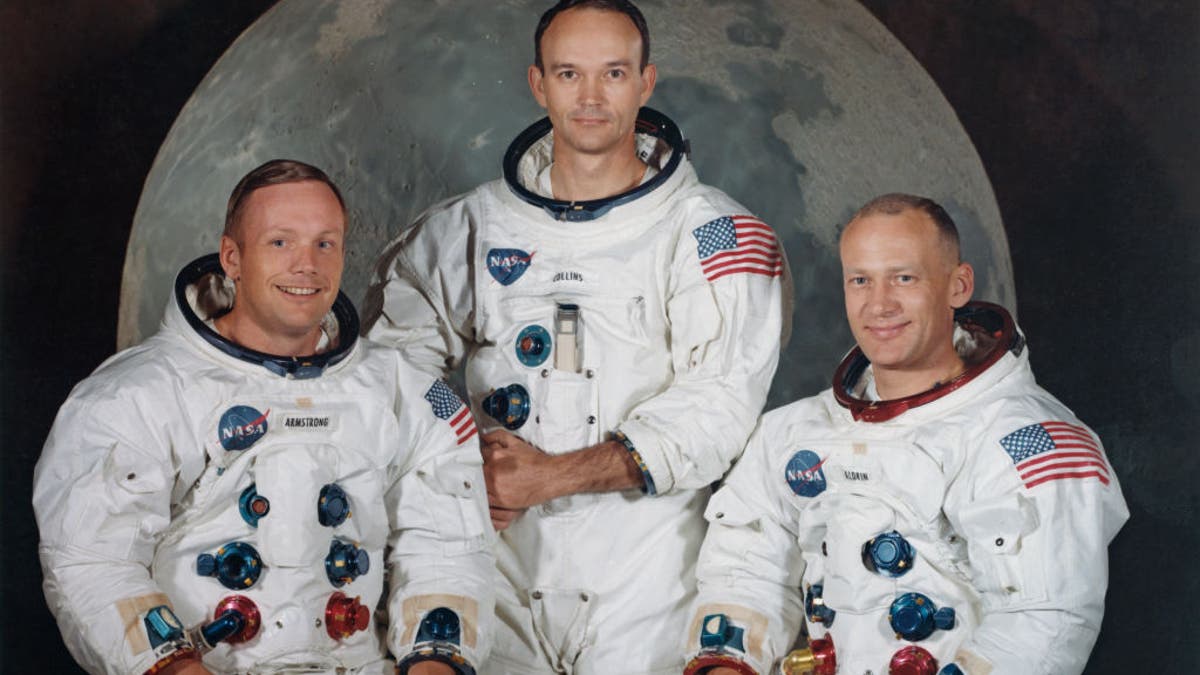
Crew members of NASA's Apollo 11 lunar landing mission pose for a group portrait a few weeks before the launch, May 1969. From left to right, Commander Neil Armstrong, and West Point graduates Command Module Pilot Michael Collins and Lunar Module Pilot Edwin "Buzz" Aldrin Jr. (Space Frontiers/Getty Images)
West Point occupies a strategic location on a dramatic west-bank bluff overlooking a bend in the Hudson River, about 60 miles north of New York City.
The river is navigable all the way to Albany, about 100 miles further north, which added to the waterway's strategic importance during the fight for independence.
The British saw control of the Hudson as a way to drive a wedge between New England and the rest of the colonies. West Point stood in the way of their ambitions.
"West Point had a major role in our nation’s history during the American Revolution," the United States Military Academy writes in its online history.
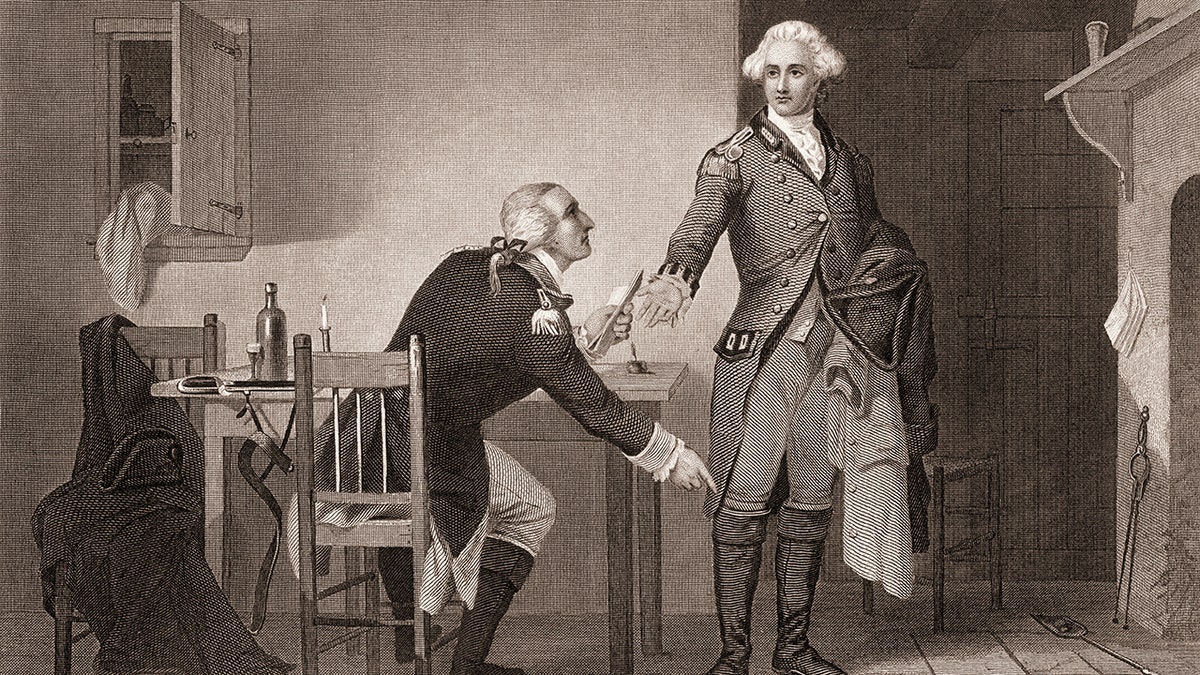
Engraving depicts American army officer Benedict Arnold (1741-1801), seated at a table, as he hands papers to British officer John Andre (1750-1780) during the American Revolutionary War, mid-to-late 18th century. Arnold formally switched sides and joined the British. (Stock Montage)
"American Continental Line soldiers constructed forts, gun batteries, redoubts and installed a 65-ton iron chain across the Hudson to block British invasions along the river."
West Point is "first in magnitude and importance … and in all probability the real [object] of the enemy’s designs," Gen. George Washington wrote as the British made probing attacks up the river.
"West Point had a major role in our nation’s history during the American Revolution." – United States Military Academy
The garrison was the center of perhaps the most infamous act of treason in American history.
Major General Benedict Arnold, a hero of the early years of the American Revolution, offered to trade West Point to the Redcoats in 1780 in exchange for £20,000 British pounds.
ON THIS DAY IN HISTORY, SEPT. 21, 1780, BENEDICT ARNOLD BETRAYS CAUSE OF AMERICAN INDEPENDENCE
His betrayal was uncovered, West Point was saved and British conspirator Major John Andre was captured and executed.
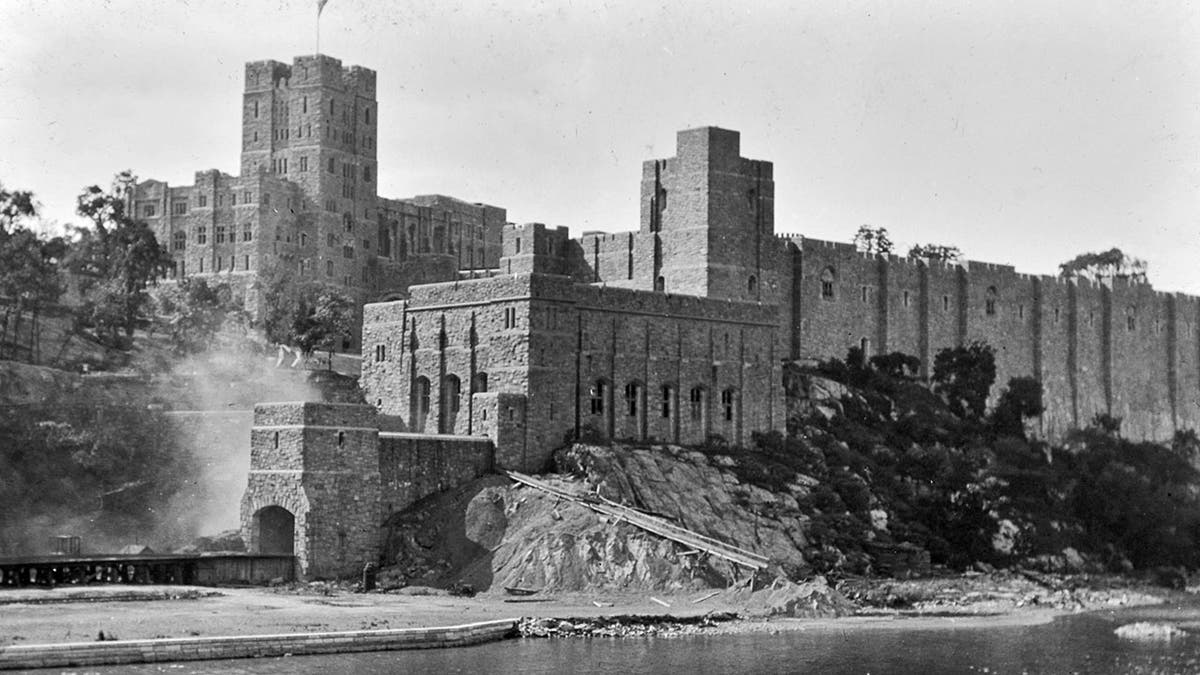
U.S. Military Academy, West Point, New York, circa 1915, vintage photograph. (Education Images/Universal Images Group via Getty Images)
Arnold escaped to England, his name forever tarnished in America.
The ignominious act merely reinforced the importance placed on West Point by military commanders on both sides of the conflict.
Coupled with its location on a major avenue of transportation, and its proximity to New York – rapidly becoming the nation's largest city – West Point was an obvious choice for the site of the United States Military Academy.
West Point has produced a long list of the nation's most celebrated military officers. Among them: "Buffalo Soldier" Henry O. Flipper (class of 1877), the academy's first black graduate; World War I American Expeditionary Force leader Gen. John J. Pershing (1886); and World War II hero George S. Patton (1909).
Confederate generals Robert E. Lee (1829) and Thomas "Stonewall" Jackson (1846), two of the most skilled battlefield commanders in American history, were also West Point graduates. Lee was superintendent of the United States Military Academy from 1852 to 1855.
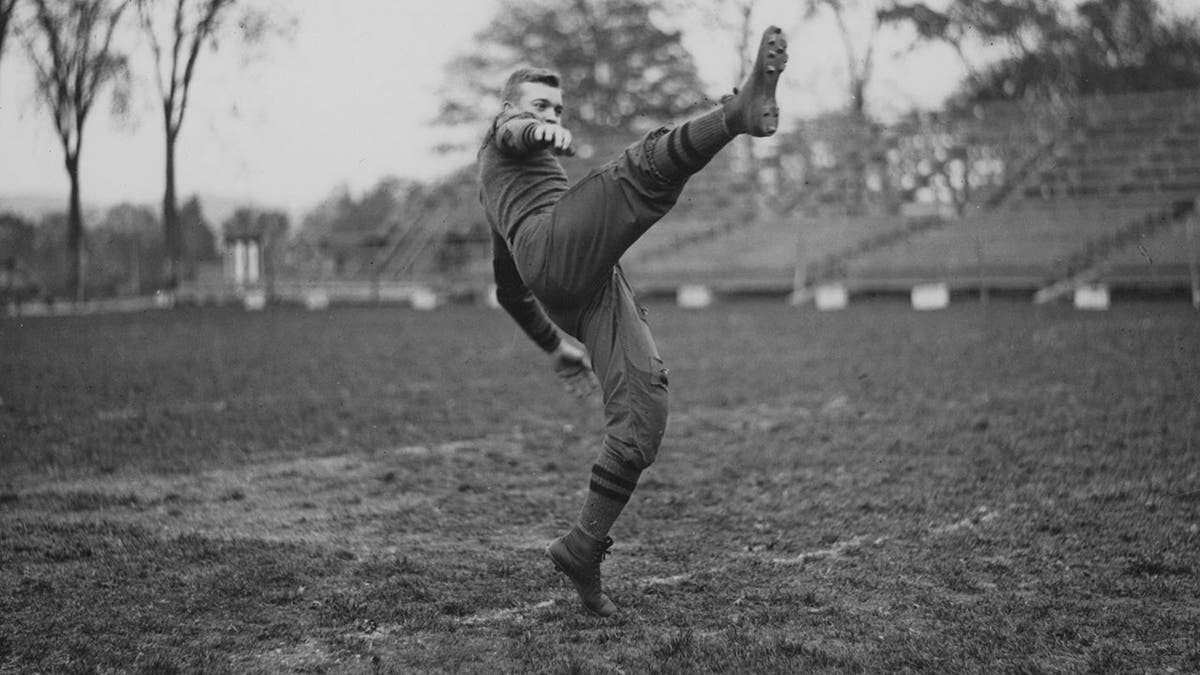
Future general and president, Dwight D. Eisenhower (1890-1969), on the football field during his time as a military cadet at West Point Academy, New York, 1912. Eisenhower (class of 1915) played football at West Point with classmate and fellow future World War II general Omar Bradley. (FPG/Archive Photos/Getty Images)
West Point has produced 83 Medal of Honor recipients, more than any other institution of higher learning, and two U.S. presidents.
Ulysses S. Grant (1843) led the Union army to victory in the Civil War and served as president from 1869 to 1877.
CLICK HERE TO SIGN UP FOR OUR LIFESTYLE NEWSLETTER
Dwight D. Eisenhower (1915) was the Supreme Allied Commander in Europe in World War II and served as president from 1953 to 1961.
CLICK HERE TO GET THE FOX NEWS APP
West Point today is the oldest continuously occupied regular army post in the United States.
It boasts about 4,400 students and produces approximately 900 lieutenants each year, about 20% of the new officers required annually by the Army.
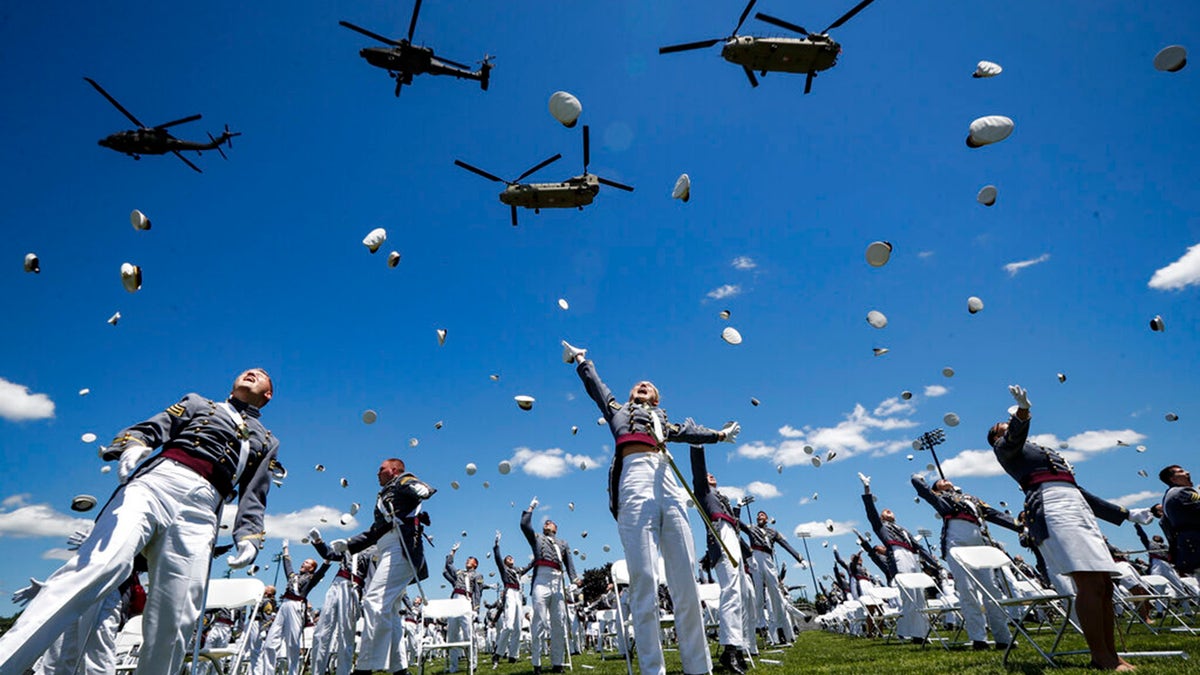
United States Military Academy graduating cadets celebrate at the end of their commencement ceremonies, June 13, 2020, in West Point, New York. (AP Photo/John Minchillo, Pool)
"From the day of its founding on March 16, 1802, West Point has grown in its size and stature, but it remains committed to the task of producing commissioned leaders of character for America's Army," the United States Military Academy proclaims online.
For more Lifestyle articles, visit www.foxnews.com/lifestyle.










































